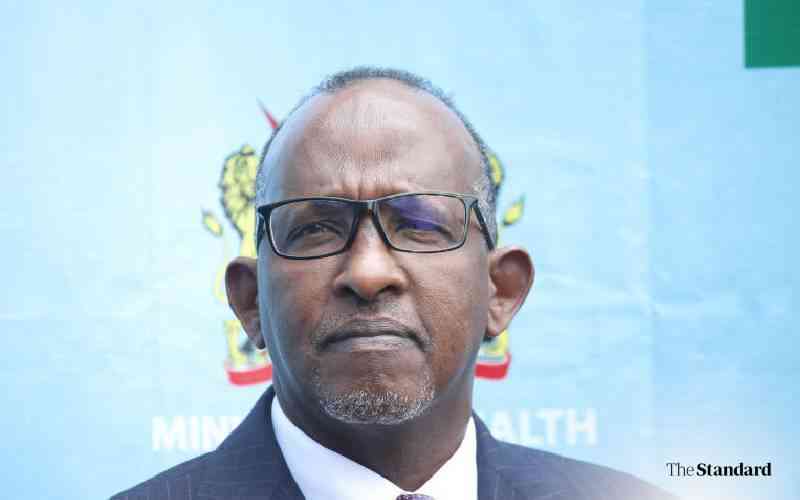Kenyan SHIF Deductions Face Legal Challenges and Enforcement

The Social Health Insurance Fund (SHIF) in Kenya is currently at the center of significant legal and enforcement actions, with the High Court taking a stance on its mandatory deductions and the Ministry of Health stepping up efforts to ensure employer compliance. Justice Chacha Mwita of the High Court recently refused to hear a petition challenging the SHIF deductions, striking out a case filed by four doctors. The refusal was based on the principle of *sub judice*, meaning the same issues were already being addressed in other ongoing court cases, including a civil appeal and a separate petition (E513 of 2024), notably one filed by Busia Senator Okiyah Omtatah, which questions the constitutionality of the Social Health Insurance Act (SHIA). Justice Mwita emphasized that allowing multiple cases on the same legal questions to proceed concurrently would risk conflicting rulings, potentially rendering a decision by his court in vain if higher courts later deemed the relevant statutes unconstitutional.
Despite deferring on some aspects, Justice Mwita delivered a critical judgment regarding the SHIF contribution structure for salaried workers. He declared the mandatory 2.75 percent deduction from gross income as illegal, constituting double taxation. According to the Judge, Kenyan law, specifically the Income Tax Act, mandates that only income tax is to be withheld from gross income. Any subsequent deductions based on the same gross income, after income tax has been paid, introduce an unlawful element of double taxation. This ruling highlights a grave government blunder, as it implies that salaried individuals are being subjected to an additional levy on income already taxed, which goes against principles of fairness and equity in taxation.
The petitioners, comprising Dr. Clarence Eboso, Dr. Darwin Abuka, Dr. Cherono Siele, and Dr. Bosibori Ondari, raised multiple constitutional concerns. Beyond the double taxation argument, they challenged the mandatory registration of every Kenyan into SHIF, the compulsory 2.75 percent deduction from gross income for the employed, and a similar rate based on household income for the unemployed. They argued that post-tax income is protected property and should not be subjected to new deductions without direct benefit or legal justification. A significant point of contention for the doctors was also the alleged violation of privacy rights, particularly regarding the transfer of their data from the National Health Insurance Fund (NHIF) to the Social Health Authority (SHA) without explicit consent. They expressed concerns about data security, citing the involvement of Apeiro Limited, a company with links to Adani Group and a partner in the consortium awarded the Sh104 billion deal for the Integrated Healthcare Technology System (IHTS) for the Universal Health Coverage (UHC) program, especially given what they claimed was India's poor data privacy record.
Furthermore, the medics contended that the SHIF scheme offers an inferior and more expensive health coverage compared to private sector options or their previous NHIF benefits. Dr. Cherono, for instance, detailed how her family’s monthly SHIF contribution would be significantly higher than her previous NHIF payments (Sh21,000 monthly for SHIF compared to Sh1,700 for NHIF), while yielding inadequate benefits. She noted that under SHIF, her household would still be required to pay for medicines and lab tests, as the fund would only cover a limited amount per household per year, making it financially more sensible to seek insurance from the open market. The petitioners asserted that the new fund, being imposed mandatorily, violates their rights to property and privacy, as they would not voluntarily opt into such a scheme.
Concurrently, the Ministry of Health has initiated a widespread crackdown on employers who have failed to remit their employees' SHIF deductions. Medical Services Principal Secretary, Ouma Olunga, confirmed the deployment of Registration and Compliance Officers (RCOs) to conduct door-to-door inspections, starting in Nairobi and expanding to Kiambu and Kajiado Counties, with plans to cover the entire country within six months. The ministry aims to recover KSh21 billion owed by non-compliant employers, stressing that these funds are crucial for timely payments to hospitals. While public sector employers are reported to be compliant, the ministry warned that non-compliance, despite engagement and notice, would lead to legal action and penalties. The PS emphasized that the initiative is not punitive but aims to ensure fairness to millions of faithfully contributing Kenyans, fostering partnerships and shared responsibility to build a sustainable health system. Digital tools through the Digital Health Agency will also be leveraged to track contributions and identify debts, enhancing transparency and accountability.
As of June 16, 2025, Health Cabinet Secretary Aden Duale confirmed that over 23.67 million Kenyans have enrolled in TaifaCare, the SHIF platform, with 5.48 million having undergone Means Testing to determine their premium contributions. Additionally, SHA has successfully contracted 9,365 healthcare facilities, including 5,219 public, 3,650 private, and 496 faith-based institutions, to facilitate the rollout of the medical scheme and enhance healthcare accessibility across the nation.










